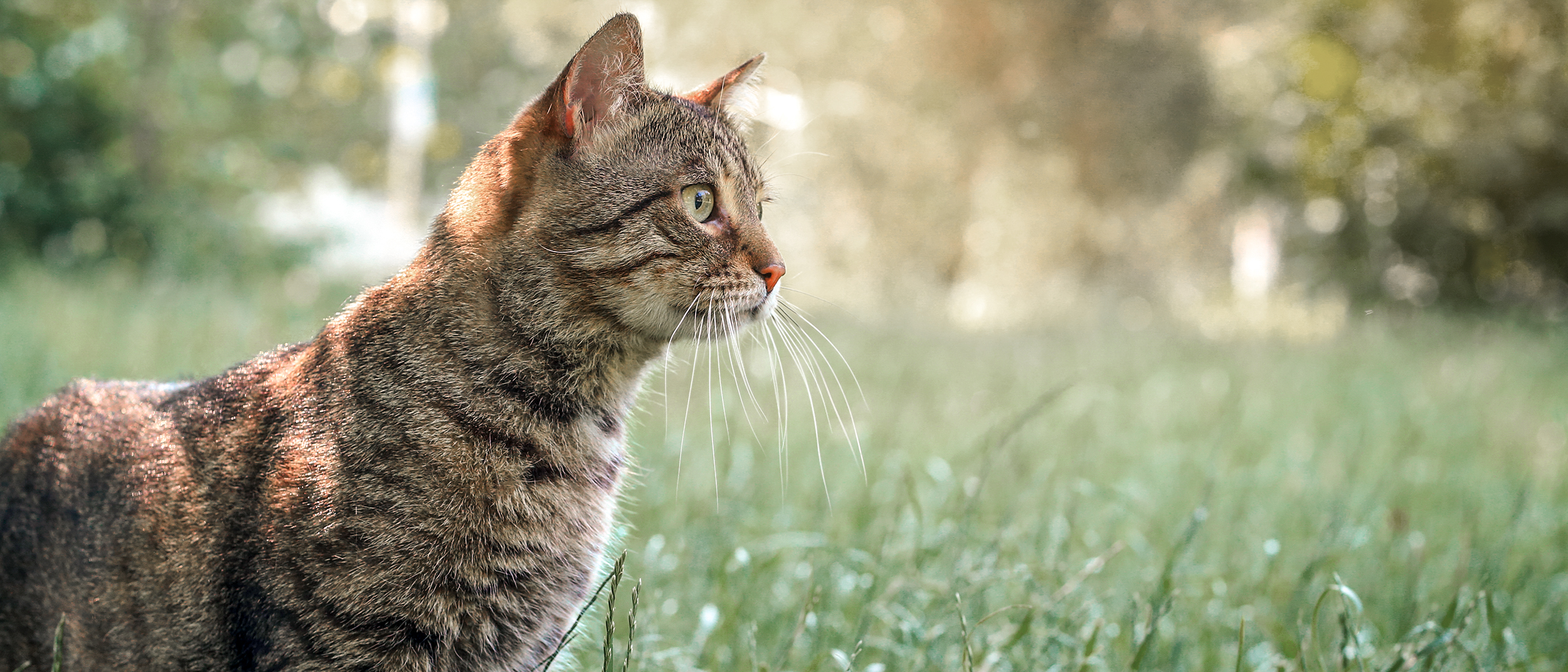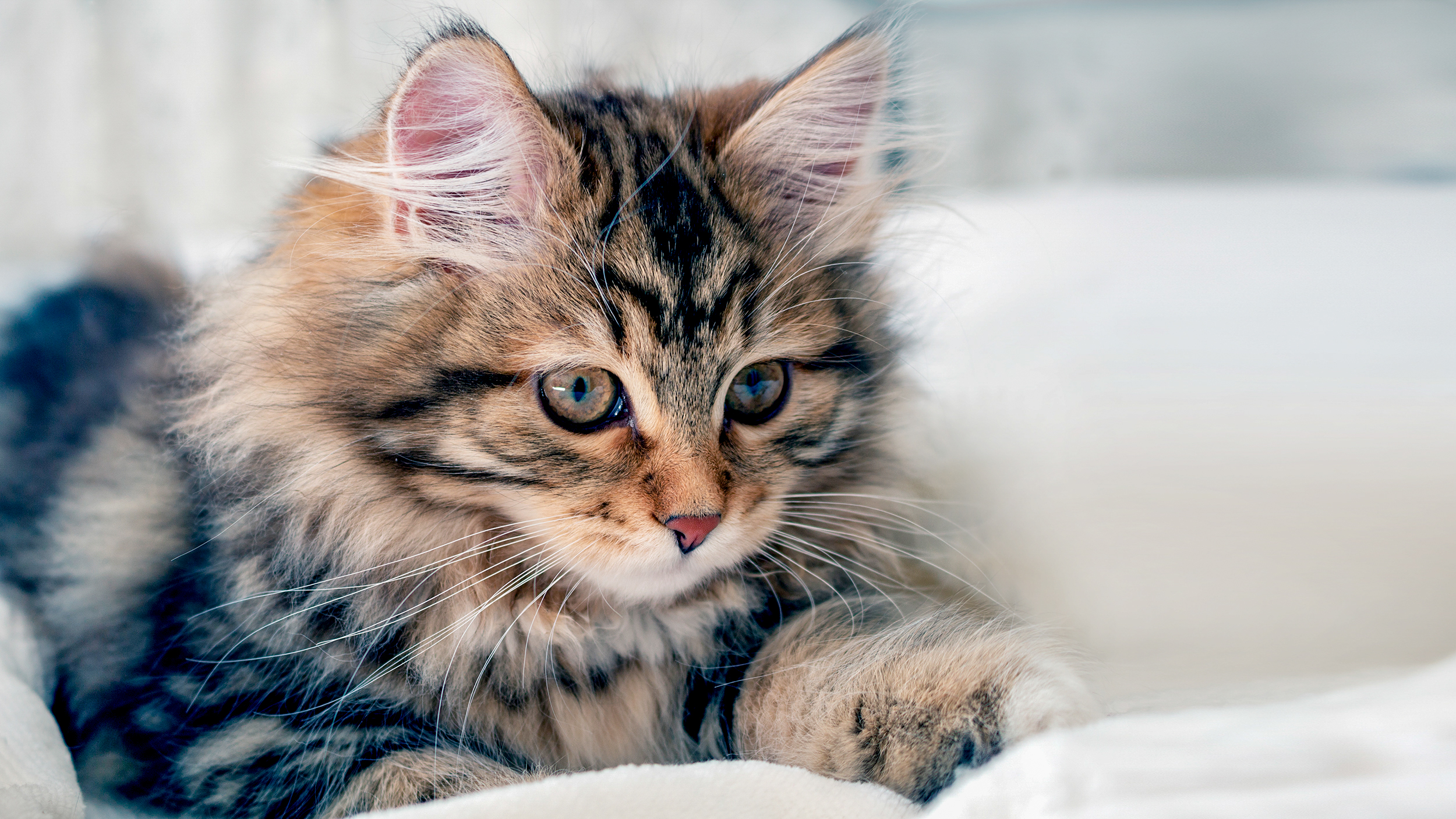When does a kitten become a cat?
Article

How long is a cat considered a kitten?
At what age do kittens become cats? Cats reach adulthood at around 12 months, although some breeds, such as the Maine Coon, continue growing until 15 months. During the kitten phase, they are developing physically and socially, so you should play with them as much as you can to help them grow into a happy, confident adult cat.
The stages of your kitten's development
Your kitten goes through various stages on its journey to becoming an adult cat. In its initial months, your kitten will grow quickly and begin being socialized by its mother and the rest of the litter. Weight gain is significant during this period and they will begin to sleep less and play more.
From birth to 8 weeks
Kittens will typically open their eyes at 7-10 days old. In these early days and weeks, they'll be suckling on their mother. During this neonatal phase, you should expect them to gain weight every day, so daily weighing is essential to keep an eye on their health. At 2 weeks they make their first attempts to stand and at about 2-3 weeks, their milk teeth begin to come through. Weaning will start at 4-4.5 weeks and by 7 weeks, they'll be exploring their new home.
From 2 to 4 months
During this period your kitten will be actively playing— an important part of their early socialization. This is also a period of intense growth where you can expect to see a big change in your kitten. They should now be eating nutritionally appropriate solid foods and by the end of the period will be fully independent of their mother's milk or kitten milk replacer for their nutrition. Find out more about feeding your kitten.
From 4 months to 12 months
Known as the juvenile and adolescent phase, this period of sustained growth will see your kitten growing and developing strong muscles, bones and social skills. They need energy-dense food as they have higher energy requirements than adult cats. However, their adult teeth will replace milk teeth between three to six months. During this teething period, you may need to change to a softer food if their gums are sore.
They’ll also be sleeping like adult cats, for 13 to 16 hours each day. But, when they're awake, they'll be climbing, running and jumping around their new home.
After 12 months
After one year, your kitten is officially an adult cat. In this young adult stage, they will be playful and fully socialized, healthy with a shiny coat, a strong skeleton and muscles, and excellent hunting reflexes.
Understanding the process by which your cat becomes an adult means you’ll be able to give them the right support they need in their diet, behavior and home life.
If you have any concerns that your kitten isn’t progressing in the right way, consult your veterinarian.

What can affect my kitten's growth rate?
There are a range of factors that can affect how much your kitten grows and at what rate. You can easily find growth charts for your kitten's breed online to help you understand more. Some of the factors that can affect your kitten's growth into an adult cat include:
- Breed: Different types of cats grow at different rates and to different sizes. If you’re not sure if your kitten is the right size for their age, consult your veterinarian to check against a growth chart.
- Diet: The food your kitten eats can have a big impact on their growth rate. At this vital stage of their development, it’s important that they get all the correct nutrients and minerals that they need to grow, regardless of whether they are eating dry, wet or a combination of both kinds of foods. Find out more about the nutrients your kitten needs in our kitten nutrition guide.
- Neutering and spaying: Your kitten's nutritional needs will change after they've been spayed or neutered. To keep their growth plan on track, you may need to adjust how you feed them. Your veterinarian will advise you on any recommended changes to their diet, feeding schedule, and portions after a procedure.
If you're worried about your kitten's weight, read our guide to kitten obesity to understand more. However, you should always consult with your veterinarian to determine the best approach to diet and weight management for your kitten.
Tailored nutrition for your kitten
Nutritional formulas that help to build your kitten's natural defences, support healthy growth, and aid in digestive system development.
Like & share this page